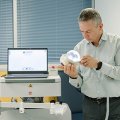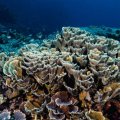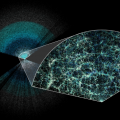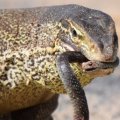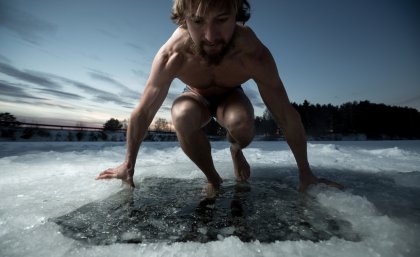
Sports coaches and trainers may soon be pulling the plug on athletes’ ice baths in the off-season after new findings by The University of Queensland and Queensland University of Technology.
Dr Llion Roberts of UQ’s School of Human Movement and Nutrition Sciences and Dr Jonathan Peake from QUT collaborated with the Queensland Academy of Sport for a report into the widespread practice.
While Dr Roberts’ previous findings showed that cold water immersion may provide some short-term benefits to an athlete’s recovery, the latest investigation revealed large reductions of long-term strength and muscle growth.
“This investigation offers the strongest evidence to date that using cold water immersion on a regular basis may interfere with strength training adaptations,” Dr Roberts said.
“Other studies alluded to potentially negative impacts, but this is the first comprehensive report.
“Cold water immersion was found to delay or inhibit satellite cell activity and suppressed the activation of an important enzyme after acute strength exercise.
“These effects may have been compounded over time to diminish expected increases in muscle mass and strength, despite the training.”
Ice baths have been a staple recovery method for many of the world’s most famous athletes —such as Floyd Mayweather, Usain Bolt and Cristiano Ronaldo —and endorsed by Hollywood celebrities.
In Australia the major football codes, in particular, are all avid users of the practice.
Dr Roberts’ study included two trials, one involving 24 physically active men over a 12-week period and another that measured 10 active men after two bouts of single-leg exercises.
Researchers in Auckland and Norway also contributed to the findings of the Queensland universities.
“This has implications for any sport where strength is important, from powerlifting to gymnastics,” Dr Roberts said.
“In one study the number of myonuclei per muscle fibre and the size of the fibres was shown to increase significantly more for a group using active recovery, but not at all for the group using cold water immersion.
“We were surprised by the magnitude of the detrimental responses.”
While Dr Roberts warned against the use of ice baths for those desiring greater strength or muscle growth, he said they could be used in select periods where recovery took precedence over adaptation.
Dr Roberts and Dr Peake plan to investigate whether post-exercise heating impacts positively or negatively on similar factors.
Media: Dr Llion Roberts +617 0416 686 660, l.roberts2@uq.edu.au or UQ Communications Robert Burgin +617 3346 3035, +61 0448 410 364, r.burgin@uq.edu.au



